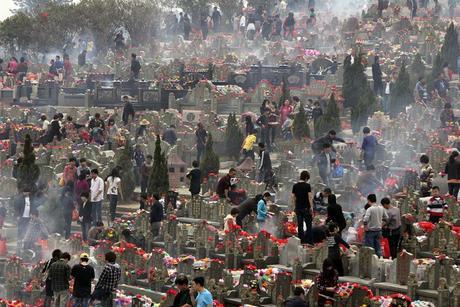
As a non-recovering chocoholic, I’ll be frank, I am a tad disappointed the Easter Bunny does not visit China!
That’s not to say the Chinese Catholic Church and other Christian churches in Xi’an aren’t acknowledging the religious significance of the occasion, but officially it’s not a holiday, with the majority of Chinese recognizing the belief systems of Confucianism, Taoism or Buddhism.
As for the glorified commercialisation of Easter, yes I’m talking about an abundance of eggs, namely the chocolate ones (ok and if you want to narrow it right down the ‘creme’ eggs in particular) well.. it’s pretty low key, in Xi’an, to say the least!

There are no tasty chocolate eggs, wrapped in-oh-so shiny, brightly-colored wrapping paper, beckoning you from behind every counter, lining shop front windows or overflowing supermarket shelves.
Generally it’s business as usual. No one is out scurrying through hedges on an easter egg hunt.
Try not to feel sorry for me (although chocolate egg donations are most welcome)!
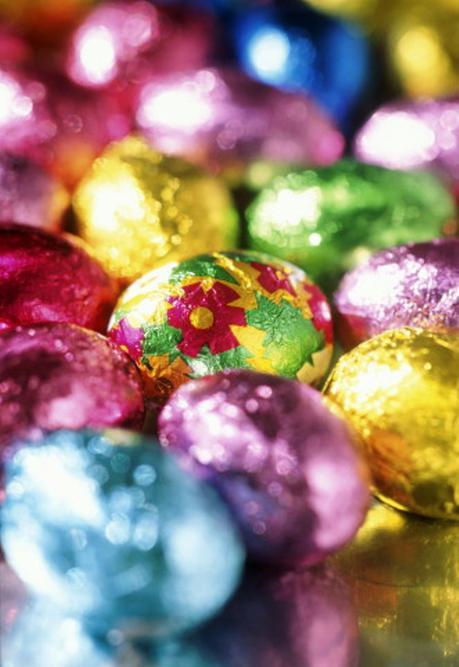
Nonetheless, there is a celebration going on this Easter, right across Asia. And don’t mind if I say, it’s bigger than Ben Hur.
It most definitely doesn’t involve chocolate, but what it does involve is ‘cold’ food (of sorts), kites and well…dead people.
It’s called Tomb Sweeping Day or perhaps slightly more appealing, QingMing Festival, also known as Pure Brightness Festival, and it falls 107 days after the start of winter on the 4th or 5th of April, every year.
This auspicious date is one of the 24 solar terms….yes I had to look it up too. Basically, it’s the Chinese lunisolar calendar which has 24 periods which governed agriculture in ancient China and still do today. Have a look here for a more in-depth description before I completely confuse you and myself.
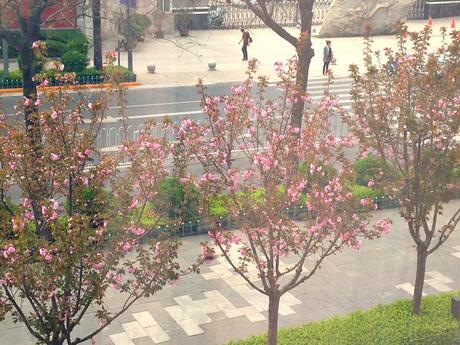
Around this date, temperatures begin to rise and rainfall increases – making it a crucial time for farmers. In March, the trees start returning to their lush green and pretty flowers are in blossom everywhere. After a dark and cold winter, it’s like Xi’an has been given a facelift!
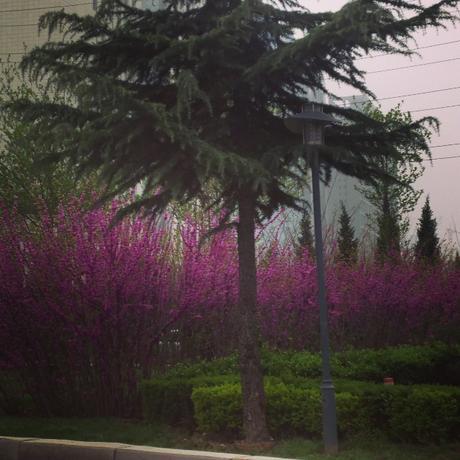
But as the name suggest it’s not all about the weather and spring flings. It’s predominantly a day to pay respect to the dead.
Why? Well, legend has it…back in 770 BC a man named Jie Zitui was so loyal to his prince who was forced into exile, he literally cut a piece of meat from his own leg (yes, yes he did) to make soup, in order to save his hungry master.
Apparently the prince was reinstated nineteen years later and rewarded those who stayed loyal to him over the years, but completely forgot about poor old Jie Zitui!
Later reminded of Jie’s loyal exploits, he felt so ashamed and decided to reward him. However, by this time, Jie had taken himself and his mother to hide up in the mountains. In order to find Jie, the prince ordered his servants to set fire around the mountain, to ‘smoke’ Jie out… unsurprisingly Jie was later found dead next to a willow tree. Filled with remorse, the prince ordered the day be forever known as ‘Haunch (Cold Food) Festival’ – a day without fire which meant no cooking so only cold food could be eaten.
It’s been celebrated ever since and became a public holiday in mainland China in 2008.
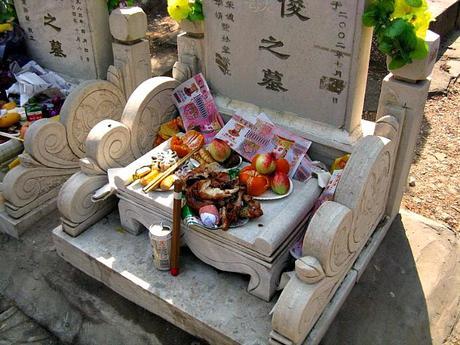
So, what does it involve? Basically, people go to clean the tombs of loved ones by pulling out the weeds and adding fresh soil. They also take the deceased loved one’s favorite food and wine as an offering to them in the afterlife. (In Chinese culture, it is believed people still need to be provided for once they’ve passed.) Paper resembling ‘spirit money’ has long been burned as an offering to the deceased, along with paper clothes, cars and houses! In more recent times, tech-savvy youth are often giving replicas of iPhones, certain their ancestors would appreciate a far more modern gadget! (Perhaps not surprisingly this has led to a market for selling cheap replica iPhones and the like online, specifically for tomb sweeping day!)
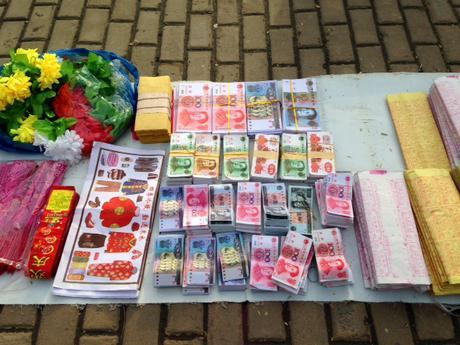
At the grave, the family members take turns to kowtow three to nine times (depending on the families’ ties to traditional values). This Kowtowing ritual in front of the grave is performed in the order of patriarchal seniority within the family. After, the whole family feasts on the food and drink they brought for the worship either at the site or in nearby gardens.
In China, it’s thought people with weak constitutions won’t cope eating cold, raw food on Qingming, when the weather is still cold, so in the past various activities were invented for building strength in the lead up to QingMing; like Chinese football, polo, willow-planting, tug-of-war, and rooster-fighting!
Today, with cremation fast taking over from burials in China, Sweeping the Tomb has been simplified in many cities. Often flowers are presented to the dead relatives ….but no matter what, respect is shown and good prayers for the deceased must be expressed.
Hence, there’s also another modern trend emerging you’ll love to hear about. Online stores are offering ‘tomb sweeping packages!’ Ah yes, too busy to mourn your loved one?…Hire a professional mourner to go in your place! (I kid you not!) (Want kowtowing and sobbing? Extra fees required!)
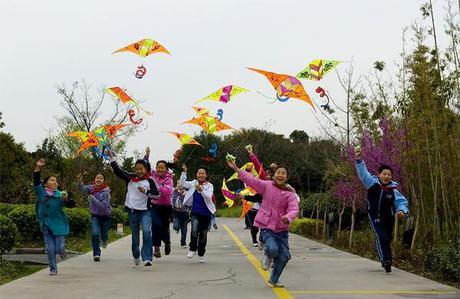
Flying kites is also part and parcel of the Qingming Festival and they come in all shapes and sizes, usually depicting animals or characters from the chinese opera. They’re flown day and night often with little lanterns tied to them. Flying kites on this day is supposed to bring good luck because people cut the string while the kite’s in the sky to let it fly free.
People can also be seen wearing a ‘willow twig’ on their heads – a nod to Jie and a traditional custom to keep the ghosts away.
So while the meaning of Easter, chocolate eggs and the bunny have very little significance for most people in China, here the people are still very much steeped in their own traditions and long-held rituals.
No disrespect, but I’d still prefer chocolate eggs over cold cuts.
This is China.

